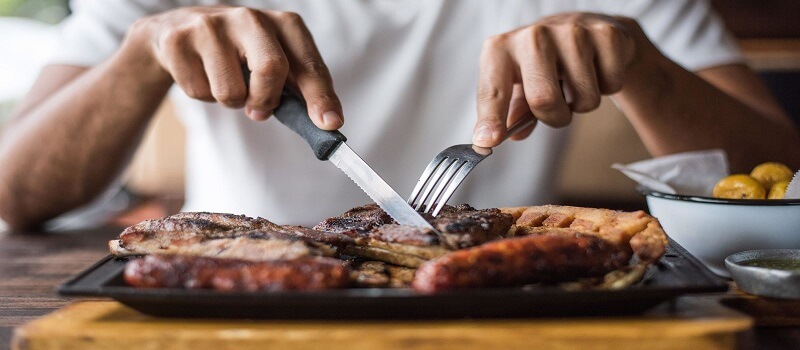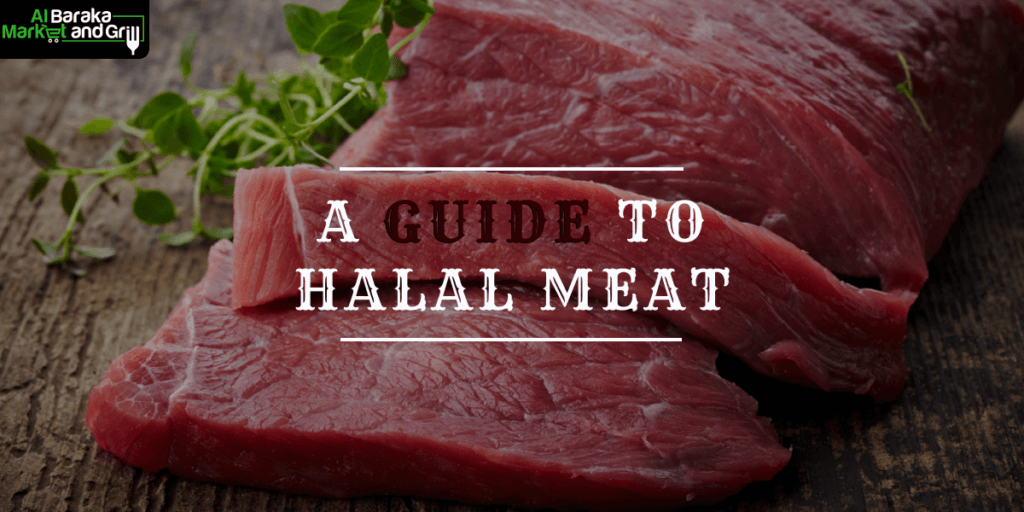With the growth of the Muslim consumer market, many Muslims all around the world look for meat that is prepared according to halal standards. According to Islamic rules, Muslims are required to consume Halal food only, anything that is not Halal is forbidden in Islam. There are many things to be mindful of when looking for Halal meat, which will be explained in this in-depth guide to halal meat. What is Halal meat, how it is prepared, what to look for when buying halal meat, and how to steer clear of haram meat – keep on reading to find out.
What is halal meat?
The term Halal refers to something that is prepared in accordance with Islamic law. Halal meat, similarly, is the meat of halal animals that are slaughtered according to Islamic law. Halal meat is prepared by sourcing permissible animals such as poultry, cattle, goats, or sheep, which are treated with love and care before being slaughtered in a humane way. The meat is then meticulously cleaned and drained of any blood, which gets rid of any germs or bacteria. This process minimizes the animal’s suffering, producing clean and fresh meat. There are many health benefits associated with consuming halal meat, which not only Muslims but non-Muslims can also benefit from.
The benefits of eating halal meat

Halal meat is arguably one of the best kinds of meat. It is a great choice for anyone – whether they are Muslims or non-Muslims. There are many ways to back this claim, especially with the numerous benefits associated with halal meat. Some of the benefits of consuming halal meat are: The Islamic slaughtering process is proven to be less painful for the animal slaughtered and aims to minimize its suffering.
- Halal meat is enriched with vitamins, omega-3 fatty acids, and antioxidants, making it healthier than non-halal meat.
- According to halal standards, it is required for animals to be grown without any growth hormones, antibiotics, or preservatives, ensuring the meat prepared is healthy and fresh.
- Due to the elaborate cleaning process of halal meat – it is free from harmful substances or bacteria that would otherwise be detrimental to the human body.
- Halal meat tastes much better and is budget friendly.
How to ensure the meat you are buying is halal

Halal meat can be sourced through several authorized butchers. It is now more commonly available in supermarkets and shops that stock halal meat. Look for the halal certified sign when buying pre-packaged meat at the supermarket. The halal certification is provided by a credible organization that confirms the meat is free from any haram or forbidden substances, and that it was prepared according to Islamic law. The meat might also contain the halal logo or the halal symbol that you can look for. Moreover, halal meat is also available online, sold by credible halal certified markets that attest to halal food production.
Considerations for halal meat
According to Islamic dietary laws, it is necessary for the animals to be slaughtered in a specific way to be considered halal. Meat is considered halal if:
- The animals are fed wholesome food free from growth hormones, antibiotics, or injections.
- The animals have an open space to grace and be dealt with love and care.
- Animals are slaughtered according to Islamic law.
- Animals are considered haram or forbidden if they die in a natural or prohibited way.
- The knife used for slaughtering should be sharp, and the animal must not see the blade.
- The name of Allah is pronounced before or during slaughter.
- Most of the animal’s blood should be drained out.
How is halal meat prepared?
The Islamic laws for the slaughtering of an animal are strict and must be followed for the meat to be considered halal. The Islamic way of slaughtering an animal ensures the animals feel minimal pain. The Islamic slaughter, known as ‘Zabiha’ follows the below-mentioned guidelines:
- The slaughterer must be a Muslim who has reached puberty, has knowledge of the Islamic slaughtering method, and is of sound mind.
- The animal is to be placed on the left side facing the Qibla (the direction of Kaabah in Makkah/Mecca).
- The name of Allah must be pronounced before or during the slaughter.
- A sharp knife is to be used to cut swiftly through the animal’s throat once, severing the jugular vein, carotid arteries, and the trachea. This process allows the animal to lose consciousness quickly, which minimizes the pain of the animal.
- The animal must be left to bleed out completely, then the animal by-products which are not intended for human consumption should be removed.
Similarities and Differences between Halal and Kosher

Halal and Kosher foods are two distinct dietary systems. They both adhere to specific religious laws – halal food is prepared following Islamic dietary guidelines while Kosher food is prepared following Jewish dietary guidelines. One might get mixed up between the two due to their close similarities, however, they do have certain notable differences:
- Halal dietary laws originate from Islamic teachings and are derived from the Quran, while kosher dietary laws are based on Jewish teachings.
- Both halal and kosher foods emphasize on humane slaughtering of the animals Halal slaughter is done by a Muslim who pronounces the name of Allah during the slaughter. Whereas kosher slaughter is performed by a shochet while following Jewish-specific guidelines.
- Halal food permits certain birds, cattle, goats, and sheep, while kosher permits similar animals with additional requirements. Kosher laws also have strict guidelines for consuming fish, which are not mentioned in Islamic dietary guidelines.
- Both halal and kosher dietary laws emphasize the separation of meat and dairy products. However, kosher laws have stricter regulations regarding the duration between the consumption of meat and dairy and the utensils used.
While halal and kosher dietary laws may have overlapping rules and regulations, the specific guidelines set by each religion make them distinct from one another. The two foods are certified by their respective religious organizations and are often marked with their respective logos.
Conclusion
Halal food can only be made with the help of halal products and halal meat. Food items prepared with halal meat are not only healthy but also taste better as they are fresh and free from bacteria, growth hormones, or preservatives. Halal meat follows Islamic dietary guidelines and is prepared according to Islamic law. It is now more commonly available online as well, which makes it easier for Muslim consumers to buy halal meat with no hassle.
